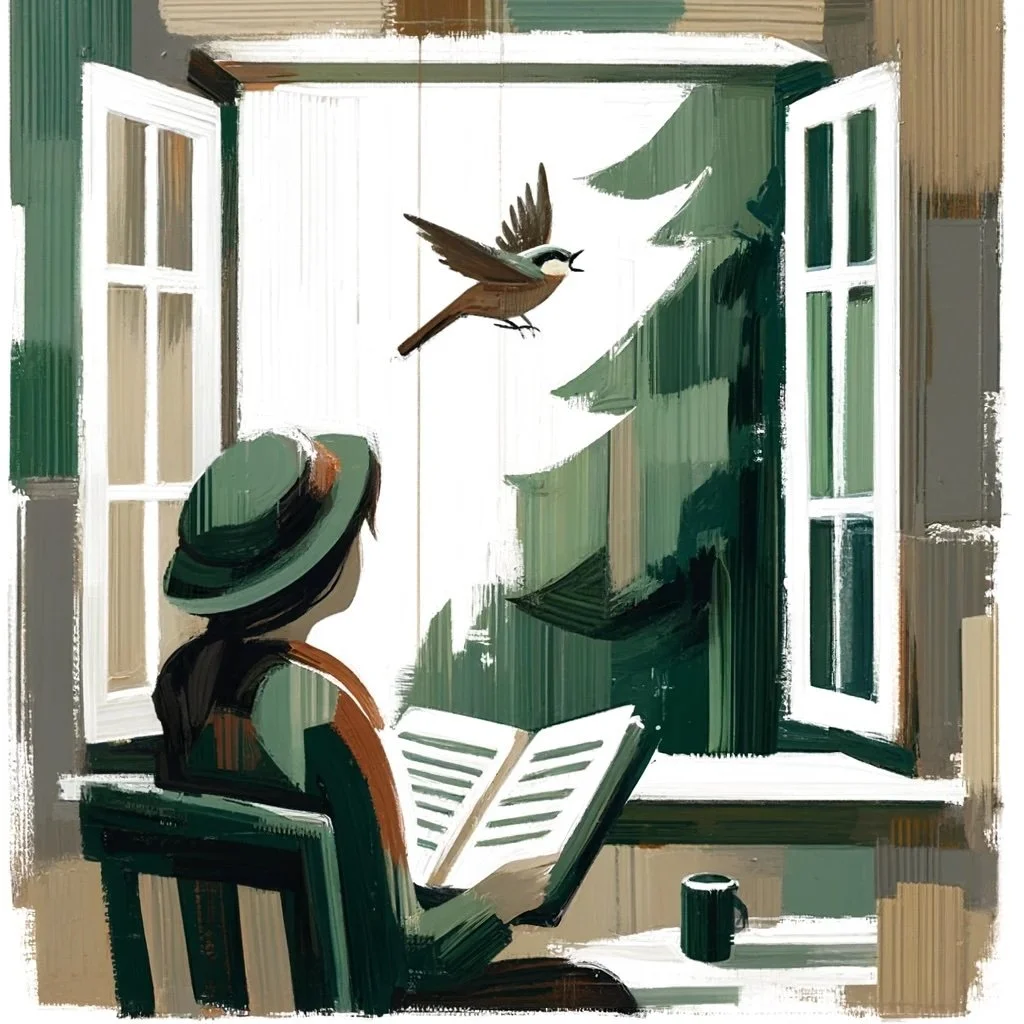
Welcome to our informational blog.
Topics covered include literary theory and practice, academic writing techniques, philosophy of education, and explanations of our methods for enhancing creative intelligence.
Trial and Error: Cultivating Your Writing Practice
Finding your ideal writing routine requires patience and an openness to change, as the best practices for one project or phase of life might not work as well in another. Consulting services with a freelance, one on one writing coach can be instrumental in helping a writer establish a healthy and effective writing routine, particularly by offering guided prompts and accountability.
Decoding Symbolism: A Guide to Enhancing Your Literary Craft
While symbols are integral to enriching literary works, creating and integrating them effectively demands sensitivity to the narrative's subtleties and a deep understanding of the audience's perspective. A manuscript consultation with a freelance book editor is an invaluable step for writers looking to refine and enhance the symbolic and imagistic elements of their book.
Triadic Harmony: The Rule of Three in Book Writing
By structuring events, descriptions, and narrative progressions in groups of three, writers are able to tap into a deeply ingrained human preference for pattern and symmetry. Writing consulting services with a freelance writing coach offer a valuable opportunity for authors to implement the Rule of Three in every stage of their book’s development.
The Fiction Writer's Guide to Mind Mapping: Developing Characters and Plots Visually
In addition to traditional linear notes, a freelance writing coach can offer a mind map as a dynamic way to freely associate ideas. This does more than speed up the idea generation process in fiction writing classes. The visual nature of mind maps helps in fiction writers spot connections and gaps in their narrative more easily.
Anchoring Memory: Frame Narratives in Memoir
A memoir writing coach guides nonfiction writers through the use of sophisticated narrative structures like frame narratives. This process begins with helping the writer articulate what they want to achieve with their work so the frame narrative fits organically with the memoir's intent.
The Anatomy of a Logline: Insights from Screenplay Editors
A screenplay editor plays a pivotal role in helping screenwriters refine and perfect their loglines, which are crucial for capturing the interest of producers, agents, and audiences.
Echoes of Carver: Embracing Minimalism in Modern Short Stories
Raymond Carver’s minimalist approach to short story writing not only transformed the literary world’s view on narrative simplicity but also influenced the techniques employed by literary fiction writers and the editors who refine their works. Short story editors guide writers to pare down their narratives to the essential, enhance the potency of dialogue, and embed subtext to achieve the blend of realism and introspective storytelling that Carver championed.
First Impressions: Crafting the Perfect Novel Opening
Mastering the art of the novel opening is essential for writers striving to captivate their audience from the outset. Fiction writing coaches and literary fiction editors offer critical insights into this process through manuscript consultations.
Defamiliarization: The Art of “Making Strange”
A fiction writing coach can leverage the concept of defamiliarization to not only deepen the narrative's intrigue but also sharpen the writer's ability to convey sensory details and encourage a freer experimentation in their craft.
From Godard to Tarantino: The French New Wave’s Impact on Screenwriting
The French New Wave’s principles of narrative fluidity, character complexity, and aesthetic innovation have had a profound impact on today’s screenwriters and directors. By dissecting these principles, screenplay coaches can harness these techniques to transform how screenwriters develop their scripts, offering tools that promote personal expression and challenge conventional storytelling norms.
From Hero to Shadow: Exploring Archetypal Roles in Fiction
Storytelling coaches, equipped with an understanding of archetypal structures, play a crucial role in guiding fiction writers through the development of their work. From conceptualization to revision, coaches help writers harness the power of archetypes to craft narratives that are engaging, meaningful, and reflective of what it means to be human.
Jonathan Swift and the Art of Satirical Critique
The transformative journey of mastering satire, as detailed through the insights of "A Modest Proposal," highlights the indispensable role of a writing coach in guiding authors to leverage this potent narrative form.
Mastering the Art of Suspense: A Fiction Writer's Guide
Mastering the art of suspense is no small feat. It requires an understanding of narrative structure, character psychology, and the thematic underpinnings that make a story resonate on a deeper level. This is where the role of a fiction writing coach becomes invaluable.
Painting in Verse: The Craft of Ekphrastic Poetry
The incorporation of ekphrasis into poetry tutoring emerges as a vital tool for nurturing a poet’s ability to observe deeply, describe vividly, and think critically. By drawing on the rich tradition of ekphrasis, poetry tutors can guide poets in honing their descriptive powers, deepening their thematic explorations, and broadening their observational skills.
Haiku: The Art of Compression
Haiku teaches the importance of capturing fleeting moments with precision and clarity. For writing tutors and students alike, the lessons of haiku offer a pathway to more expressive, effective, and evocative writing.
Mastering the Art of Dialogue Through Playwriting Format
Understanding the key components of playwriting format can provide valuable insights into how it effectively captures character interactions. By dissecting the fundamental elements of this format and its profound impact on dialogue and interactions, we uncover invaluable insights for writers across disciplines, aiming to enhance their craft and deepen the narrative resonance of their work.
Below the Surface: Hemingway's Iceberg Theory and Its Implications for Modern Writing
Ernest Hemingway's Iceberg Theory, also known as the theory of omission, is a cornerstone of literary modernism that emphasizes the depth of narrative lying beneath the surface of the text.
Digital Writing Analytics, AI, & Human Expertise: How Writing Coaches Can Help
In the evolving landscape of digital writing, the advent of sophisticated writing analytics and artificial intelligence (AI) tools presents both opportunities and challenges for writing coaches, tutors, and editors – especially those working online.
Mastering Multimodal Composition: The Role of Writing Coaches
Multimodal composition is not just an artistic choice but a necessity in today's digital landscape, where messages compete for attention in a sea of content. Writing coaches, with their deep understanding of diverse communicative forms, are instrumental in guiding writers to excel in this complex yet captivating domain.
Elevating Digital Communication: Writing Coaching for Digital Literacies
Writing coaches, with their nuanced understanding of both the art and science of writing, are uniquely positioned to guide their clients through the complexities of digital literacies, transforming them into adept digital communicators.





















